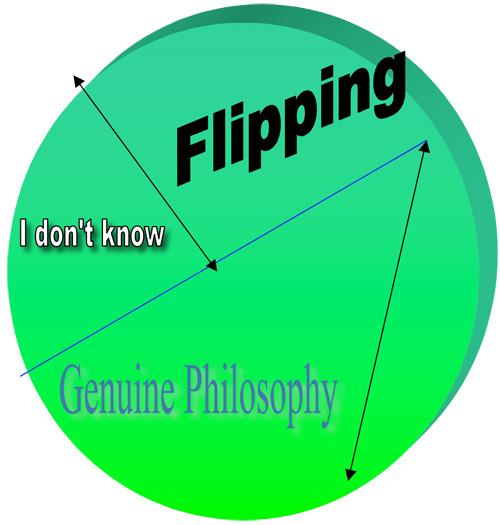"Byrne, Baby, Byrne"
By Elisa Ludwig, A&E
Musician, artist and record label owner David Byrne apparently felt something was missing from his c.v.” “spiritual guide.” Byrne’s book The New Sins, originally conceived as part of last year’s biennial celebration in Valencia, Spain, is his longest work of prose and his first foray into theology. The book, modeled after a religious tome, complete with Byrne’s photographs and creative typography, goes after some old virtues (beauty, thrift, and humor) and asserts they are the “new sins.” Byrne, who will be in town this week reading from The New Sins, explains some of the philosophy and personal thrills that went into its making.
EL: How much of the rhetoric here was guided by the models of religious texts you have read?
DB: Quite a bit. Occasionally, sections of the book are direct lifts from tracts, but paraphrased or reworked slightly. Other sections are less literally inspired, but the use of convoluted language, bizarre reasoning and repetition are obvious influences from this genre of literature. I have a small collection of texts and tracts, Masonic books and self-help manuals. Some are quite beautiful. Like poetry with an agenda.
It is difficult to believe that someone whose work is infused with humor would suggest humor as a sin. Is humor itself a sin or are you referring to the way it’s used?
There’s a little bit of Freud in there as well – his well-known pieces on jokes. We all have friends who have strange laughs–you yourself might even have a strange laugh–and one can easily see how the sounds of these laughs are aural versions of their originator’s personalities–an audio sample of the character of a person. This doesn’t answer your question, but it might be more interesting than an answer.
In the description of “beauty,” one can see allusions to a shiny plastic world like the one depicted in your film True Stories. Can you speak about this idea in relationship to that film?
I tend to look at True Stories as a more affectionate look at Texas (and America) than it is sometimes perceived. Texans are proud of their eccentrics and their eccentricities, our current president’s family being a prime example. Ideas of beauty there are so intertwined with notions of historical revisionism and cultural agendas that there is no simple Beauty with a capital B. I am serious in the book that beauty can be a lure, a diversion and a mask. We tend to associate beauty with a deeper interior goodness and purity, but there is no relationship whatsoever. As long as we are clear on that point, we can enjoy a sunset over the oil refineries in peace.
Are the mental sufferings of Nobel Prize winners and saints as you describe them very different from the sort of self-imposed discipline of an artist such as yourself?
Nobel Prize winners, at least the sort of version of them we read about in the newspapers, have no room for self-doubt. They are on big, important missions, making economic models that don’t work or showing us how we can put pigs’ genes in fish, and they cannot and should not be distracted by self-doubts. (But I’ll bet they are.) Artists are self-important and pompous as well. Some of them only talk about themselves, which can be beautiful in a strange obsessive kind of way, but mostly it is tedious. Unfortunately, this lack of self-doubt might be important and essential to creativity. Obnoxiousness and creativity might be joined at the hip.
How much of what you assert is part of your genuine philosophy and how much, would you say, was inspired by the gleeful feeling of flipping religion on its head, as you describe it in McSweeney’s?
I have attached a pie chart as an answer:

Would you say that bibles have become more like objets d’art in an age where religion has become less relevant?
Books in general have become more like objects of art. Nowadays they are less sources of information and more like talismans, touchstones, physical manifestations of a point of view–this is pretty close to what art objects are, no? But this is a whole different topic.
I noticed that journalists in your book have their own circle of hell.
Oh, you’re not there, nor are any of your friends—but the other ones, the ones who haven’t written a single article about the Afghan dead and make a front-page headline when a GI gets killed…they are mouthpieces of politicians and generals, CEOs and marketing managers. They are writing fluff pieces that establish a false reality. Now I’m starting to really sound like an evangelist.
